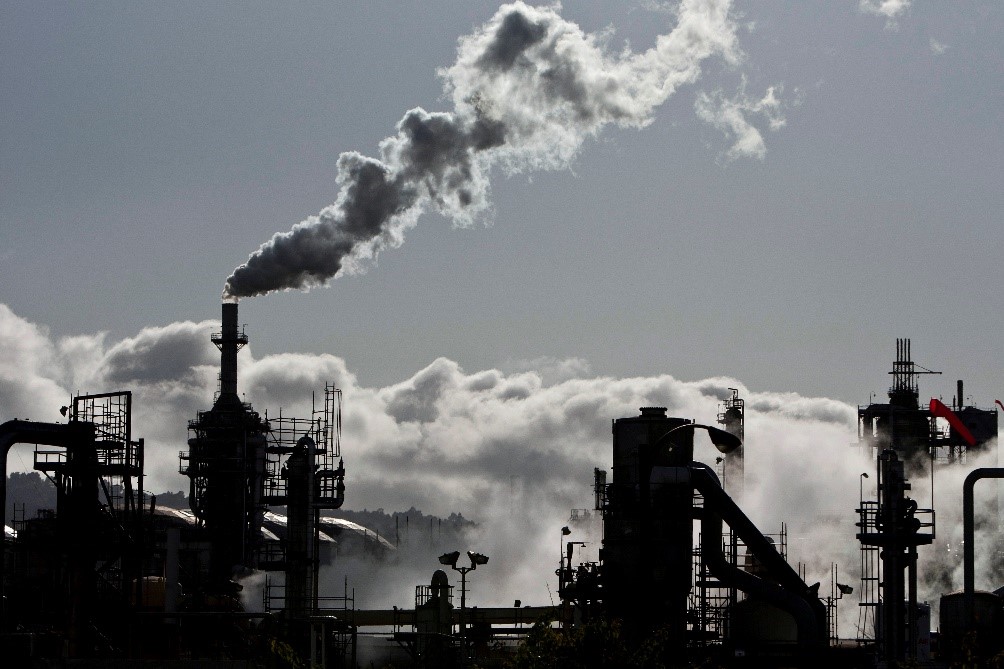Description

Disclaimer: Copyright infringement not intended.
Context
- According to a new deal struck at COP28 countries need to phase down 'unabated' coal power.
What are ‘unabated’ fossil fuels?
- When it comes to fossil fuels, “unabated” means doing nothing to reduce the carbon dioxide (CO2) and other greenhouse gases that are released from the burning of coal, oil, and natural gas.
- Conversely, “abated” refers to the attempts to decrease the release of polluting substances to an acceptable level.
- However, there isn’t any clarity on what this level is and how to get there. Moreover, there is no international or agreed-upon definition of the two phrases.
IPCC on Abated Fossil Fuels
- The UN Intergovernmental Panel on Climate Change (IPCC) says unabated fossil fuels are those “without interventions that substantially reduce” greenhouse gas emissions. That would mean capturing at least 90% of CO2 from power plants, or up to 80% of the methane that leaks during energy production and transport, the report suggests.

CCS technologies
- Discussions around fossil fuel abatement largely revolve around CCS technologies — they capture emissions from power stations or industrial facilities and store them underground. But those discussions remain deeply polarised.
- While Oil and gas-producing companies and countries see carbon capture as a key component in plans to cut greenhouse gas emissions, climate activists and experts suggest that its role is limited.
- Recently, the European Union and 17 nations including Germany, France, Chile, New Zealand and climate-vulnerable island states, in a statement, said carbon capture technologies are no substitute for a drastic cut in fossil fuels and they shouldn’t be overused.
READ: CARBON CAPTURE UTILISATION TECHNOLOGIES
https://www.iasgyan.in/daily-current-affairs/carbon-capture-utilisation-technologies-26
https://www.iasgyan.in/daily-current-affairs/carbon-capture-and-storage
How beneficial are carbon capture and storage technologies?
- In its report, Carbon Capture, Utilisation and Storage, the International Energy Agency (IEA) said power and industrial plants that are equipped with modern CCS technologies capture around 90% of the CO2.
- However, a 2022 study by the Institute for Energy Economics and Financial Analysis (IEEFA) found that most of the 13 flagship CCS projects worldwide that it analyzed have either underperformed or failed entirely.
- Another analysis by Climate Analytics, a Germany-based climate science and policy institute, revealed that reliance on CCS could release an extra 86 billion tonnes of greenhouse gases into the atmosphere between 2020 and 2050.
- If carbon capture rates only reach 50% rather than 95%, and upstream methane emissions are not reduced to low levels, this would pump 86 billion tonnes of GHG (greenhouse gases) into the atmosphere – equivalent to more than double the global CO2 emissions in 2023.
- Discussions around fossil fuels abatement are creating the false impression that CCS would help limit average global temperature below 1.5 degree Celsius even when there is an expansion of fossil fuel projects.
- However, scenarios that achieve the Paris Agreement’s 1.5°C limit sustainably show a near complete phase-out of fossil fuels by around 2050 with only a tiny amount of fossil CCS,” the analysis noted.
- CCS technologies are also very expensive. It’s cheaper to shut down a coal plant and replace it with some combination of wind, solar and batteries in comparison to attaching a carbon capture device to the plant.

Moving Ahead
- According to the deal struck at COP28, countries need to phase down unabated coal power.
- Many climate-vulnerable nations and experts are concerned that this would allow countries and fossil fuel companies to continue to burn coal as long as they capture the emissions and store it underground.
- The false promises of ‘abated’ fossil fuels risks climate finance being funnelled to fossil projects, particularly oil and gas, and will greenwash the ‘unabatable’ emissions from their final use, which account for 90% of fossil oil and gas emissions.
|
PRACTICE QUESTION
Q. What are carbon capture and storage technologies (CCS) technologies? How beneficial are carbon capture and storage technologies for emission reduction?
|
















